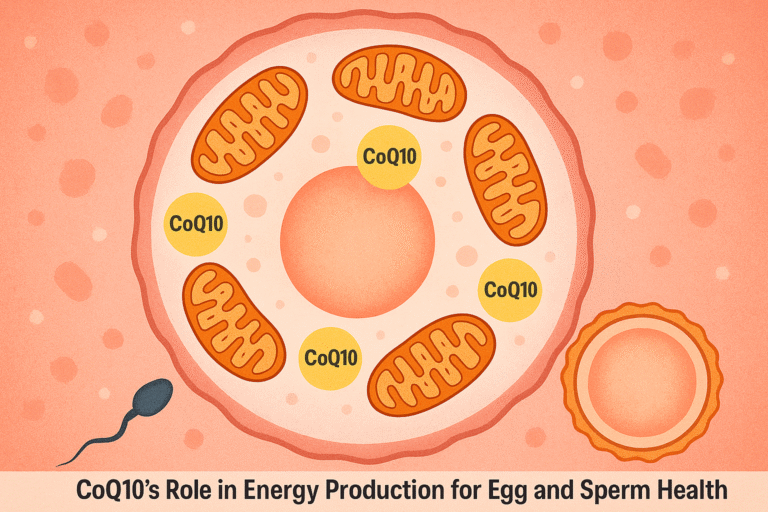When it comes to improving fertility, many couples focus on diet, exercise, and lifestyle changes. However, one often overlooked yet crucial factor in reproductive health is antioxidants. These natural compounds, found in many fruits, vegetables, and other foods, offer numerous benefits to overall health, including their role in enhancing fertility. But how exactly do antioxidants boost fertility? Let’s dive into the science and explore how they work their magic.
Read more: Foods that can increase sperm count and quality
What Are Antioxidants?
Antioxidants are compounds that help protect the body from oxidative stress. Oxidative stress occurs when there is an imbalance between free radicals (unstable molecules that can damage cells) and the body’s ability to neutralize them with antioxidants. Free radicals can harm cells, proteins, and even DNA, leading to a wide range of health issues, including infertility.
Some common antioxidants include vitamins A, C, and E, as well as minerals like selenium and zinc. These nutrients are abundant in foods such as berries, leafy greens, nuts, seeds, and colorful vegetables.
The Connection Between Antioxidants and Fertility
Fertility, whether in men or women, depends on various factors, including hormone balance, egg and sperm quality, and the health of the reproductive organs. Antioxidants play a crucial role in all these areas by protecting the reproductive cells from oxidative damage.
1. Improving Egg Health in Women
Egg quality is a significant factor in female fertility. As women age, the number of eggs decreases, and the quality of those eggs may decline. This process is accelerated by oxidative stress, which can damage eggs and impair their ability to be fertilized.
Antioxidants, particularly vitamins C and E, can help protect eggs from oxidative damage. These nutrients neutralize free radicals, safeguarding the eggs’ genetic material and promoting healthier eggs. Research suggests that antioxidants may even improve the chances of a successful pregnancy for women undergoing assisted reproductive treatments like in vitro fertilization (IVF).
2. Enhancing Sperm Health in Men
Male fertility is also influenced by oxidative stress, which can damage sperm cells and reduce their motility (ability to move) and viability. Antioxidants, especially selenium and vitamin C, can protect sperm from oxidative damage, improving sperm count and motility. This is particularly beneficial for men experiencing infertility due to low sperm quality.
In fact, studies have shown that antioxidant supplementation can significantly improve sperm parameters, leading to improved fertility outcomes. One study demonstrated that men who consumed antioxidant-rich foods had a higher chance of conceiving compared to those with lower antioxidant intake.
3. Balancing Hormone Levels
For both men and women, hormone levels play a crucial role in fertility. Oxidative stress can disrupt the delicate balance of reproductive hormones, which can negatively impact the menstrual cycle, ovulation, and sperm production. Antioxidants help regulate hormonal fluctuations by reducing oxidative damage to hormone-producing glands, such as the ovaries in women and the testes in men.
A balanced hormone level supports regular ovulation in women and optimal sperm production in men, both of which are essential for successful conception.
4. Supporting Overall Reproductive Health
Beyond eggs and sperm, antioxidants help maintain the health of the entire reproductive system. For example, they reduce inflammation and improve blood flow to the reproductive organs, ensuring that both male and female reproductive systems function properly. This support is essential for the success of natural conception or assisted reproductive technologies.
Foods Rich in Antioxidants for Fertility
To reap the fertility-boosting benefits of antioxidants, it’s important to incorporate them into your diet. Here are some foods rich in antioxidants that can support fertility:
- Berries: Blueberries, strawberries, and raspberries are packed with antioxidants like vitamin C and flavonoids.
- Leafy Greens: Spinach, kale, and broccoli are loaded with vitamins A, C, and E, all of which help protect eggs and sperm.
- Nuts and Seeds: Almonds, walnuts, and flaxseeds provide essential antioxidants like vitamin E and zinc.
- Citrus Fruits: Oranges, lemons, and grapefruits are excellent sources of vitamin C, which supports healthy egg and sperm function.
- Dark Chocolate: Rich in flavonoids, dark chocolate offers a tasty way to boost antioxidant intake.
- Green Tea: Known for its high levels of polyphenols, green tea can improve overall reproductive health.
Antioxidant Supplements for Fertility
While it’s always best to obtain antioxidants through a healthy diet, some individuals may benefit from supplements, especially if they have specific deficiencies. Before starting any supplementation, it’s important to consult with a healthcare provider, as excessive antioxidant intake can sometimes have adverse effects.
Common antioxidant supplements for fertility include:
- Vitamin C and E: These vitamins are often taken together to protect eggs and sperm from oxidative damage.
- Coenzyme Q10 (CoQ10): Known for its role in cellular energy production, CoQ10 is often used to improve egg quality and sperm motility.
- Zinc and Selenium: These minerals are essential for healthy sperm production and function.
- Folic Acid: While primarily known for its role in pregnancy, folic acid also plays a role in preventing oxidative damage to eggs.
Conclusion
Antioxidants are powerful allies in boosting fertility by protecting reproductive cells from oxidative damage, improving sperm quality, egg health, and hormone balance. Whether you’re trying to conceive naturally or with assisted reproductive technologies, antioxidants can provide a vital boost to your fertility journey. By incorporating antioxidant-rich foods into your diet or considering supplements with the guidance of a healthcare professional, you can take proactive steps toward optimizing your reproductive health.





[…] Also read: Antioxidants may also help to boost your fertility […]